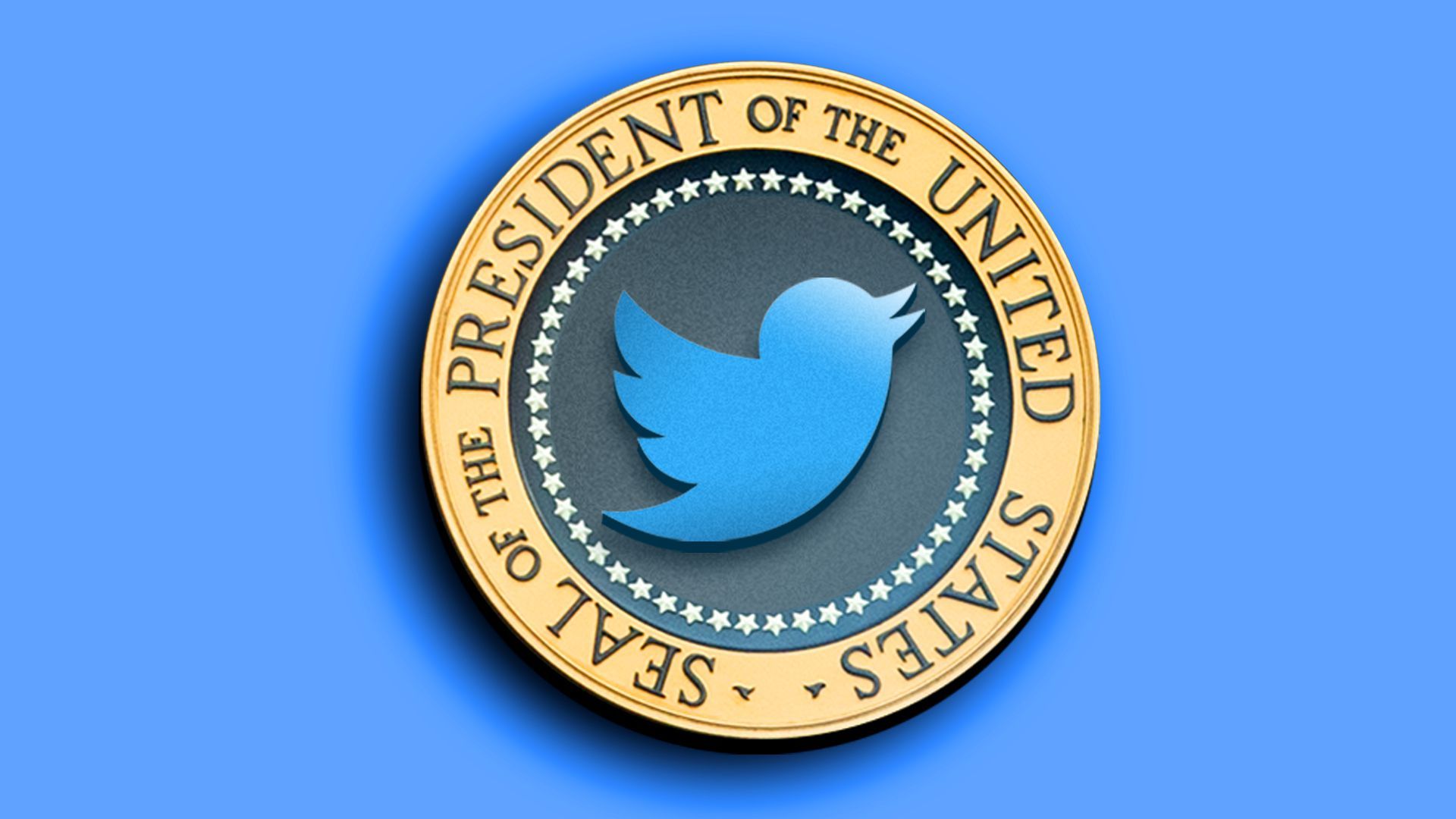| | | | | | | | | | | Login | | By Ina Fried ·Dec 23, 2020 | | Thanks for reading us in 2020 — today's Login is the last for this year. It clocks in at 1,585 words, a 6-minute read. Here's to safe holidays and a new year's reset! | | | | | | 1 big thing: Tech needs to play the long game |  | | | Illustration: Annelise Capossela/Axios | | | | In 2021, tech, an industry built on speedy change, is going to have to learn to wait, Axios' Scott Rosenberg writes. The big picture: Every crisis tech faces — from the onslaught of antitrust litigation to the massive SolarWinds cyberattack to the pandemic's toll on health and the economy — has unfolded in slow motion and will take at least as long to resolve. What's happening: Tech built its success on eliminating delays, from the late-20th-century dawn of personal computing's Moore's Law-driven exponential growth and the beginning of supercharged "internet time" to Facebook's "move fast and break things" ascent and Amazon's same-day delivery promises. That magic is failing at this historical moment. Tech may have prospered as a lifeline to the homebound during a shelter-in-place year, but now the industry's legendary agility offers no short-cuts around the problems it confronts. Fending off the monopoly-busters: - When the judge in the Department of Justice's lawsuit against Google estimated that the case would be likely to come to trial in 2023, you could hear the collective jaw-drop from industry leaders, critics and journalists alike.
- 2023! Three years is a generation in tech. Who knows which of the media outlets covering this story will even be around then?
- Yes, but: We knew that history shows tech antitrust cases take forever.
- The question for Google and Facebook is whether fighting tooth and nail and stretching out the timelines of these cases further is the smart long-game move.
- Company leaders may believe they're buying time for their companies to keep growing. But the last company to be in this position and take the trench-warfare approach, Microsoft, dragged out its ordeal only to become obsessed, distracted and nearly paralyzed by the fight.
- Microsoft won the battle in the end, only to lose industry initiative to a new generation of giants — led by Google and Facebook. Those companies are now betting they can escape the same fate.
Coping with the pandemic aftermath: - When coronavirus lockdowns first hit last March, the tech industry was able to leap in and ramp up videoconferencing, home delivery services, contact-tracing app development and other rapid adaptations to the new reality.
- But the resolution of the crisis is happening on a much slower timeline. Surging virus infection and hospitalization rates, even as vaccine programs begin to kick into gear, slow recovery efforts and elude tech-based quick fixes.
- Tech can help around the edges — for instance, with products that verify vaccination status — but there's little it can do to speed up the public-health timeline or economic recovery.
Cleaning up the SolarWinds cyberattack mess: - When government and industry systems are compromised as badly as appears to have happened in the Russia-linked SolarWinds hack, there's no quick fix.
- You can patch the flaw that led to the initial breach, but when enemies have been freely roaming inside your network for months, rooting them out requires significant expenditure and deep patience.
- In many cases, a "burn the system down and start fresh" strategy is the only way to guarantee that you've booted the intruders. There's no way to do that overnight.
Our thought bubble: Each of these crises demands resilience from companies, and resilience isn't something that tech's young giants have had much experience cultivating. - Some of them, including Facebook and Google, have never had to make massive cutbacks or tough choices in an economic downturn.
- They're now at the corporate life-stage where painful compromises and slow adaptation are a lot more likely than continued massive growth.
The bottom line: Tech companies can't avoid slowing down and planning for the long horizon — all they can do is try to get good at it. |     | | | | | | 2. Scoop: DHS to issue China data security warning to U.S. businesses | | The Department of Homeland Security is set to issue an advisory to U.S. businesses, warning them of data security risks associated with using communications equipment and services from China-linked companies, as Bethany Allen-Ebrahimian reports. The big picture: The advisory comes as the Trump administration makes a final push on China, highlighting the administration's emphasis on the risks posed by the close relationship between some Chinese companies and the Chinese government. Details: The 15-page advisory was compiled by the Office of Trade and Economic Security, with input from several different U.S. agencies and offices, according to a senior administration official who spoke with Axios. - Its stated goal is to warn U.S. companies of the risk of Chinese government-sponsored data theft that can occur through U.S. business partnerships with Chinese companies, or through the use of their products and services.
- It lays out China's legal environment, which requires Chinese companies and individuals to comply with government requests to hand over data and provide other assistance to law enforcement and security agencies, with little legal recourse.
The advisory specifically cautions U.S. businesses with regards to data centers owned or operated by Chinese firms, foreign data centers built with Chinese equipment, joint ventures with Chinese firms, software and mobile device applications, and fitness trackers and other wearables, according to a copy of the advisory reviewed by Axios. - It also recommends U.S. companies who do choose to engage with Chinese companies should reduce the amount of their data stored in China, take steps to protect proprietary information, scrutinize business relationships, and strengthen terms of service agreements.
Go deeper: U.S. charges against Zoom executive highlight tech's China problem (Axios) |     | | | | | | 3. 5G race spurs $66B bidding war |  Data: FCC; Chart: Axios Visuals A bidding war for airwaves that power 5G service has already hit a record-setting $66 billion as of Tuesday evening and could hit $72 billion for the U.S. government before Christmas, Margaret Harding McGill reports. Why it matters: Wireless carriers, cable companies and others need these airwaves to deliver 5G service, and the U.S. is behind other countries in doling them out. What's happening: Companies like AT&T and Verizon are competing in a Federal Communications Commission auction for airwave licenses in a "sweet spot" (known as the C-band) of the spectrum that will allow them to provide 5G speeds to consumers. - "There's a lot of pent-up demand," New Street Research analyst Philip Burnett said. "The carriers have been waiting for years now to get their hands on this spectrum, and they realize what's on the line, so they're willing to spend."
So far, companies have bid $66 billion and will pay an additional $13 billion to get quick access to the licenses. The bulk of that money will go to the U.S. Treasury. - Bidding in the current auction began earlier this month and is beginning to slow.
- "At some point the aggregate dollars each of these carriers will owe is going to be more than they can possibly raise without having their credit ratings downgraded," Burnett said.
Flashback: The previous record-holder was an airwaves auction in 2015 that generated nearly $45 billion in bids. What's next: Because the airwaves are already being used for other services, the earliest the winning bidders will be able to deploy them for 5G will be at the end of 2021. - That's only in the biggest cities in the U.S., Burnett noted. For everyone else, it will likely be 2023 before these airwaves are used for 5G.
Go deeper: Watch Axios' "Get Smart" videos to learn more about 5G |     | | | | | | A message from Axios | | How to send vital updates your team will read and remember | | |  | | | | Cut through inbox clutter to share important company information with your team. Be smart: Use AxiosHQ to send updates that are clear and simple to skim. - Early adopters are seeing soaring open rates on their internal comms.
Learn more about AxiosHQ. | | | | | | 4. Biden won't inherit official White House account Twitter followers |  | | | Illustration: Annelise Capossela/Axios | | | | Twitter on Tuesday confirmed that while it will transfer about a dozen official administrative accounts to the Biden administration, it will not transfer over the followers associated with those accounts, as Sara Fischer reports. Why it matters: The move is a departure from the precedent set in 2017 when Twitter transferred millions of followers from official Twitter handles used by the Obama administration to the Trump administration. The change spurred public criticism from Biden's digital director on Twitter. Details: According to a Twitter spokesperson, on Inauguration Day 2021, Twitter will facilitate the transfer of institutional White House Twitter accounts like @WhiteHouse, @LaCasaBlanca, @POTUS, @VP, @PressSec and @Flotus. - "The accounts will not automatically retain their existing followers," the company said in a statement. Instead, Twitter says it will notify followers of those accounts to let them know that the content from those accounts will be archived with the National Archives and Records Administration (NARA).
- As in the past, the official accounts will be renamed to reflect the administration they belonged to (i.e. — @POTUS will be renamed @POTUS45), but the Biden administration will inherit the @POTUS account with zero followers.
- Twitter will inform users and let them choose to follow the Biden administration's new accounts.
Between the lines: Trump will be able to keep his personal account @realdonaldtrump, which has amassed over 87 million followers, but some of the protections he had as a prominent world leader will not carry over once he leaves office, sources tell Axios. - That means he is more susceptible to measures being taken against his account if he repeatedly breaks Twitter's rules.
|     | | | | | | 5. Take Note | | On Tap - Deleting Slack from my phone, locating the "do not disturb" settings on my many devices and staying home. Eating too much and building lots of Legos also highly likely.
Trading Places - Mike Troncoso, a former aide to Kamala Harris, is leaving his post as political head of the Chan Zuckerberg Initiative, as Vox reports, noting speculation he may join the incoming Biden administration.
ICYMI |     | | | | | | 6. After you Login | | I know this Login, and more importantly, this After you Login, has to last a while, so I saved up a few little treats. Feel free to let me know your favorite(s). |     | | | | | | A message from Axios | | How to send vital updates your team will read and remember | | |  | | | | Cut through inbox clutter to share important company information with your team. Be smart: Use AxiosHQ to send updates that are clear and simple to skim. - Early adopters are seeing soaring open rates on their internal comms.
Learn more about AxiosHQ. | | | | | | Axios thanks our partners for supporting our newsletters.
Sponsorship has no influence on editorial content. Axios, 3100 Clarendon Blvd, Suite 1300, Arlington VA 22201 | | | You received this email because you signed up for newsletters from Axios.
Change your preferences or unsubscribe here. | | | Was this email forwarded to you?
Sign up now to get Axios in your inbox. | | | | Follow Axios on social media:    | | | | | |







No comments:
Post a Comment